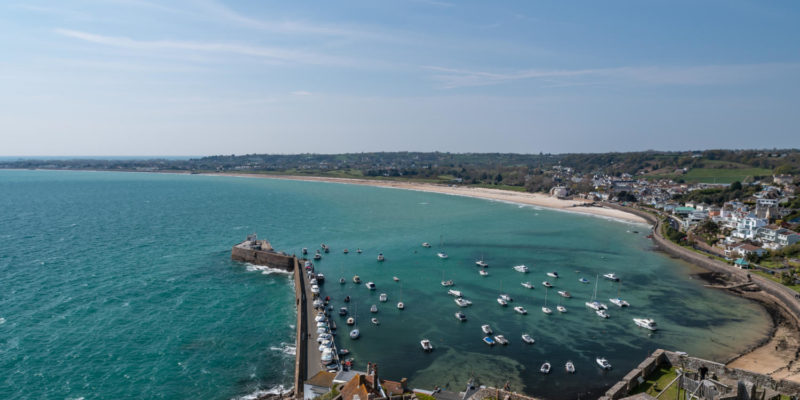In May 2019, the States Assembly of Jersey declared a climate emergency and set a target to reach net zero by 2030.
In response, the Government of Jersey asked Oxera for help in designing a unique decarbonisation pathway to meet this goal over the next ten years.
Counting the cost of a net zero goal
While most European countries have set their own binding net zero targets, few are as ambitious as Jersey’s.
Decarbonising within a decade is exceptionally challenging, and there are few carbon-free economies to rely on for precedent.
The key issue for Jersey was how to bridge the gap between its existing carbon footprint and its future net zero aim—and, crucially, how much this would cost.
Learning from international precedent
As a first step, the Government of Jersey asked Oxera to review international best practice relating to the design of decarbonisation policies.
Our strategy involved uncovering Jersey’s main sources of emissions and its current policies to tackle them, and cross-referencing these with international best practice.
We found two main culprits of Jersey’s carbon emissions: road transport and heating buildings. We determined the most appropriate measures for Jersey’s unique circumstances, and prioritised them within a new 2030 Carbon Neutral Strategy.
A toolkit for a decade of decarbonisation
We conducted a quantitative assessment to price up preferred net zero policies for heating and transport. A separate work package examined alternative decarbonisation fuels to complement the modelled decarbonisation pathway—including biofuels, biogases and hydrogen.
Ultimately, we produced three reports to inform Jersey’s Carbon Neutral Strategy. Our work continues to be used by the island’s government to engage the public and policymakers, driving change.
We also provided an interactive quantitative model that forecasts how costs and emissions could evolve in different scenarios. The tools we have implemented help the Government of Jersey to assess and flexibly respond to changing circumstances and innovations. We continue to help Jersey’s policymakers negotiate with key stakeholders in sectors that are critical to achieving net zero by 2030.
